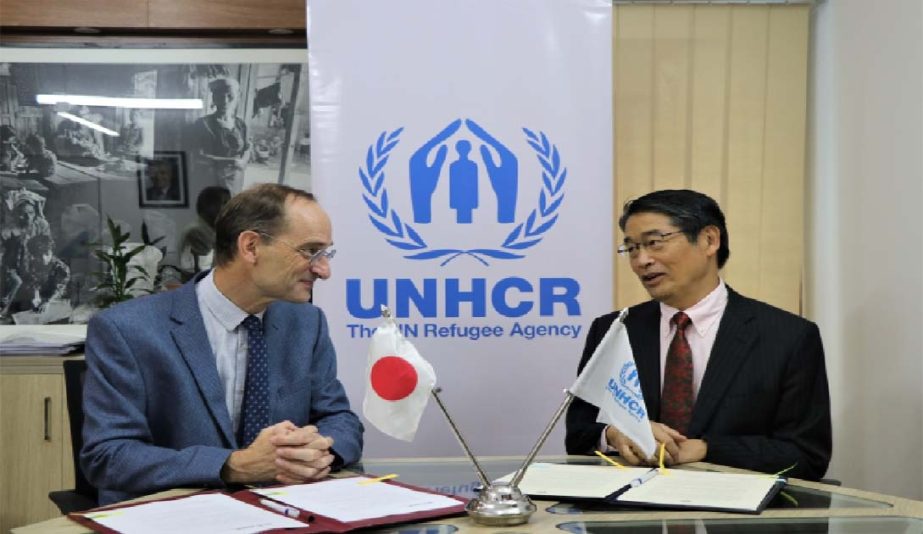
UNB, Dhaka :
Japanese Ambassador to Bangladesh Ito Naoki has said Japan will continue to work towards early repatriation of Rohingyas to Myanmar noting that a durable solution to the Rohingya crisis will be helpful to realise a free and open Indo-Pacific.
“I’m of the view that a durable solution to this crisis will be conducive to realising Free and Open Indo- Pacific,” he said on Wednesday.
The Japanese Ambassador mentioned that his country will continue contributing to the better living conditions of refugees and host communities in collaboration with international organisations and NGOs.
UNHCR, the UN Refugee Agency, has signed an agreement with the government of Japan for a generous donation of US$ 4.4 million to improve access to healthcare for Rohingya refugees and their Bangladeshi host communities in Cox’s Bazar district.
“It’s our great pleasure to provide assistance to this project, and we strongly hope it’ll improve healthcare and medical situations of both refugees and host communities,” said Naoki.
During his last visit to the camps in Cox’s Bazar back in October, the Ambassador said, he saw the dedicated and professional work of UNHCR and the other agencies amid the difficult situations.
“The significant contribution from the government of Japan will allow UNHCR to continue providing vital access to healthcare for some 265,000 refugee and host community members, following what has been a uniquely challenging 18 months, as Covid-19 increased health needs for both refugees and Bangladeshis,” said Johannes Van Der Klaauw, the UNHCR Representative in Bangladesh.

The pandemic has compounded the existing health needs in the extremely congested camps, with limited water and sanitation services, and saturated health facilities.
The three-year-project will support the construction of new in-patient facilities in Ukhiya Specialised Hospital to facilitate access to specialised care, same-day surgeries and other services scarcely available in the district, including assistance to mental health and psychosocial support.
It will also support the renovation and maintenance of 39 healthcare and nutrition facilities in the Rohingya refugee camps and allow for the provision of critical medical supplies, equipment and medicines to both refugees and Bangladeshis, said the UN agency.
The project will be implemented in close collaboration with the Government of Bangladesh, including the Ministry of Health and Family Welfare and the Office of Refugee Relief and Repatriation Commissioner, under the Ministry of Disaster Management and Relief.
Since the influx of more than 700,000 Rohingya refugees to Bangladesh in August 2017, Bangladeshi authorities and humanitarian organisations have been responding fast to meet the most critical humanitarian and protection needs, preserve refugees’ sense of hope, and support host communities.
The government and the people of Bangladesh continue to generously host over 900,000 Rohingya refugees, until their voluntary and sustainable return in safety and dignity and their reintegration in Myanmar can materialise, when conditions allow.
Japan has been a reliable and longstanding supporter of UNHCR and the Rohingya refugee response in Bangladesh, contributing some USD $150 million to international organisations and NGOs in Bangladesh to assist both refugees and host communities since the beginning of the emergency, including this project, said a joint media release.
Earlier this year, Japan contributed USD $10 million to improve access to clean water for vulnerable host and refugee communities in Teknaf Upazila.

